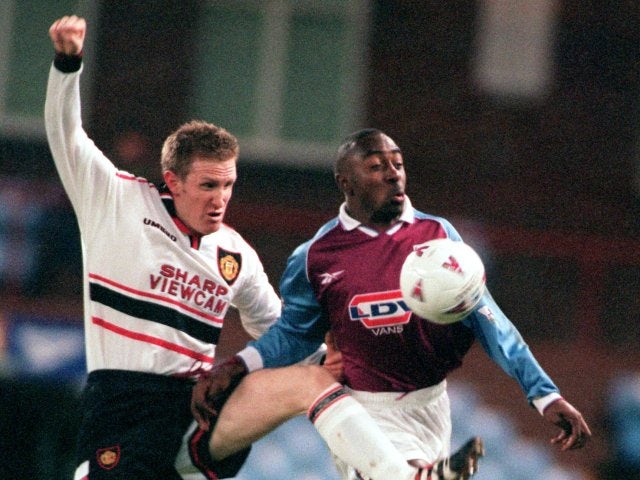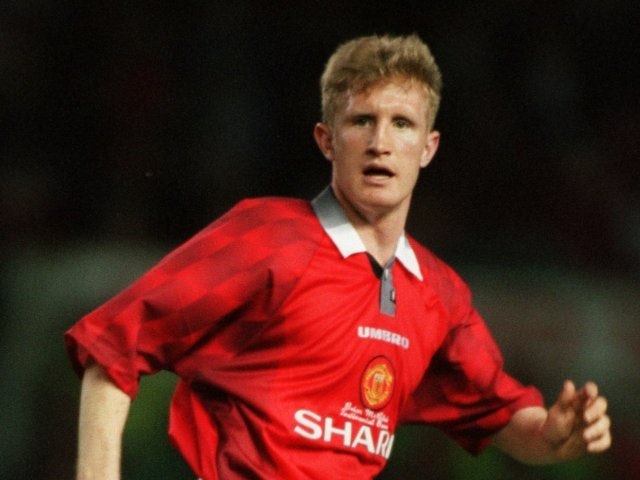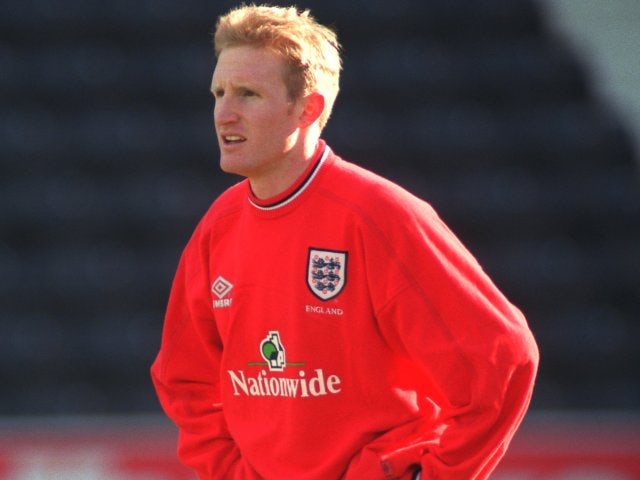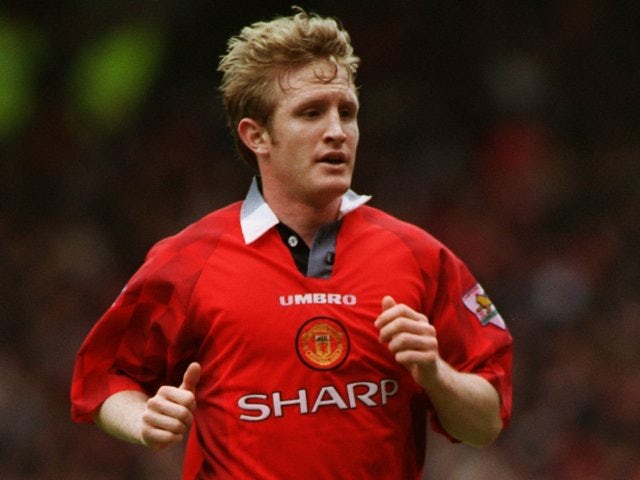It's fair to say that Manchester United will be a very different place next season.
For the first time since November 1986, the retiring Sir Alex Ferguson will not be in the dugout as the champions set about defending their crown. Also calling it a day is veteran midfielder Paul Scholes, as well as former United winger David Beckham.
Someone that played under Ferguson and in the same team as the ex-England internationals is John Curtis. Now part of the Everton coaching staff at their base in Connecticut, Sports Mole caught up with the 34-year-old to get a flavour of what it was like to work alongside some of the biggest names in world football.
Even at the age of 71, Ferguson's retirement surprised many people. Did it surprise you?
"No, not really. If you think about some of the things that have been happening recently – the unsettlement with Wayne Rooney, signing people like Robin van Persie, who is older than his normal signings – there were clues to what was coming. I think had people been a little bit cute about it, you could have read those clues."
Do you think that he has made the right decision?
"Absolutely. It's the perfect time to go. I'm sure that he would have loved to have won another European Cup, but you can't have everything – he's won a couple already! What he has achieved is amazing."
What was it like working under arguably the greatest manager, perhaps ever?
"It was fantastic - he is a great guy. Everyone has got this impression that he is a tyrant, but he wasn't. If you take a look at his record – the people that have been loyal to him and done the business for him, he looks after them and rewards them so well. It's only the people that crossed him in any way [that he fell out with]. He's straight with you, absolutely straight and that is how he was. As long as you gave him 100%, he was fine. From a player's perspective, you knew exactly where you stood. Again, if you gave 100% at all times, there were no problems. That is all you can give."
He has a reputation as someone who give youngsters, yourself included, a chance to impress in the senior side. What is it about him and his coaching staff that makes their track record of doing that so impressive?
"It's not just one thing, it's a myriad of things. When I was at United, my digs backed onto the training ground. I could see the car park at The Cliff from my window. I'd get up to go to the toilet at like 5.30am, look out the window and there was one car in the car park – it was his Mercedes. I'd go back to bed for a couple of hours! He'd be there at a ridiculous time in the morning – that is the difference. I've heard stories about Jose Mourinho doing a similar sort of thing, sometimes sleeping at the training ground. That's the kind of commitment to the job, the cause, that sets the people that are really going to achieve from the rest. Ferguson was certainly one of them."
 © PA Photos
© PA Photos
You made your debut against Ipswich Town in the League Cup in 1997 and then your Premier League debut against Barnsley a couple of weeks later. Did Ferguson treat you any differently before those matches to calm any nerves?
"No, he didn't. He just saw it as a natural progression and didn't behave any differently, before or after. He treated you with respect and didn't treat you any differently than he did the top players. By doing that, that puts you at ease and you felt part of the squad."
He has recently described the famous 'hairdryer treatment' as a "myth". Is that the case? Or did you ever experience it?
"By the time I got there, he had mellowed a little bit. Don't get me wrong, he would bollock you if you needed it. I remember one time I was playing against Coventry City in the Premier League. I didn't run and get the ball quick enough and we were drawing at the time. I let Peter Schmeichel run out and get the ball and that is the biggest bollocking that he has ever given me, because I didn't get the ball in time.
"He wasn't in my face or anything like that, but there was a lot of finger pointing and telling me what was what! It's just that he wants everybody to win. He wants born winners and I think that's why he got on so well with people like Roy Keane. He understands them because that is the way that he is. Anybody who is like that, he tends to have good relationships with."
You joined Barnsley on loan in 1999 before departing permanently for Blackburn Rovers. How did those moves come about? Did you want to leave or was it something that the manager advised you to do?.
"I went to see the gaffer in 1999 after the Champions League final and it was some time in the September I think. My head had gone. I didn't know what I was doing there and needed to get away. So I went to see him and said, 'Gaffer, what are the chances of me getting away on loan?' Within a week I was at Barnsley. To be honest it was the best thing that I ever did.
"In hindsight, I wished I had done it the year before. I may have missed out on the Treble season, but it would have given me more experience of professional football. I think I went to Barnsley and played virtually every game that season. That was a fantastic experience for me. To come from United to Barnsley was a culture shock to say the least, but it was very nice at the same time. Barnsley is a family-friendly club, not saying that United isn't, but the two were chalk and cheese in terms of first-team squads at the time. Barnsley put me on the path for my career and it was a fantastic move for me, which Ferguson sanctioned."
 © PA Photos
© PA Photos
How much does his departure weaken United? And does it give the likes of Manchester City and Chelsea a big advantage?
"Yes because it's the end of an era. David Moyes has got huge boots to fill. I'm now working in America, but three or four months ago I was ringing Old Trafford because I needed reference letters for my visas and other stuff. It's the same people at United when I was there and they were there before I joined. These people have been there 20 or 30 years – Ferguson is all they've known really.
"It's going to be difficult to get those guys working together like Ferguson had. He ran the club. In his later years he certainly stepped back and delegated more, but he ultimately had the call over all the things that were going on. Everything was run how he wanted it to be. Whether Moyes is happy with that, we'll have to wait and see. He is clever guy and is a successful man in his own right. He's going to have to stamp his own mark gradually."
Is Moyes the man you would have selected to take over?
"I don't know really. It's certainly got that continuity feel about it. I think it is was going to be a difficult job for anyone to step in there. The minute there is a bad patch, it is going to be a very difficult time."
What was it like to be able to call the likes of Scholes and Beckham teammates? Just how good were they?
"Both of them are phenomenal players and fantastic professionals. People always say to me, 'Who is the best player you've ever played with?' I always say Paul Scholes. He is technically a superb player. When you think about it he's small, he's not particularly athletic, but you could argue that he was the best player in the Premier League for around 15 years or so. He's an unbelievable player. What speaks volumes for him is when you look at other players that were around when he was – people like Thierry Henry, who is a fine physical specimen and Patrick Vieira. Scholes wasn't like them at all and yet he was one of the best around, if not the best."
They came through in a crop of decent youngsters, didn't they?
"That whole group of players – Beckham, Scholesy, Giggsy, Butt and the Nevilles – they had a work ethic that was instilled into them by Eric Harrison. They would stay behind in training every day religiously. David Beckham would be at The Cliff every day with spots marked out in the goal and he would be trying to hit those. It's no accident that he turned out to be a very fine free kick taker. It was the same with his deliveries from corners and crosses. He just practised and practised hard."
 © PA Photos
© PA Photos
There is talk of Paul Scholes staying on as a coach and maybe Phil Neville returning in some capacity. Is it a good idea for Moyes to surround himself with these types of players?
"Yes it is, but equally I think David Moyes needs people around him who he can trust. Whether those people are that, I don't know. Every manager needs people who are going to be loyal. Ferguson brought in Archie Knox when he was first there. If Moyes can get through 18 months to two years, he will have done very well. Then he can go on and have a bit of longevity at United. Getting people in who understand the club is key, but having his own people in wouldn't be a bad thing as well."
On a personal level, how are you enjoying the coaching in America?
"It's great. I started coaching towards the end of my career, but as a player never thought that it was a step I would take. It's a great experience for me over here. I've now played in England and Australia and coached in those countries as well as Italy and now America. I'm developing a broad understanding of coaching and management from doing this, which is fantastic.
What's the plan in the future then? Maybe a managerial or coaching role back in England?
"Hopefully. I said to myself that I'd spend the next 10 years developing as a coach and a manager. That's what I'm doing over here, as well as my coaching licences. I'm working with Everton and the link to them is very strong. We are properly affiliated with them. I've been over to Finch Farm and worked with coaches over there and they have others coming out here. We've got all sorts going on."
Finally, from a United point of view, what represents an acceptable and successful first season in charge for Moyes?
"Finishing first or second because that is the standard at United. They've got to challenge all the way and play attractive football. The fans demand it and the club has a history of great players playing exciting and attacking football. I'm sure David Moyes knows what he is doing and will be successful. I certainly wish him all the best because I want to see United do well."









